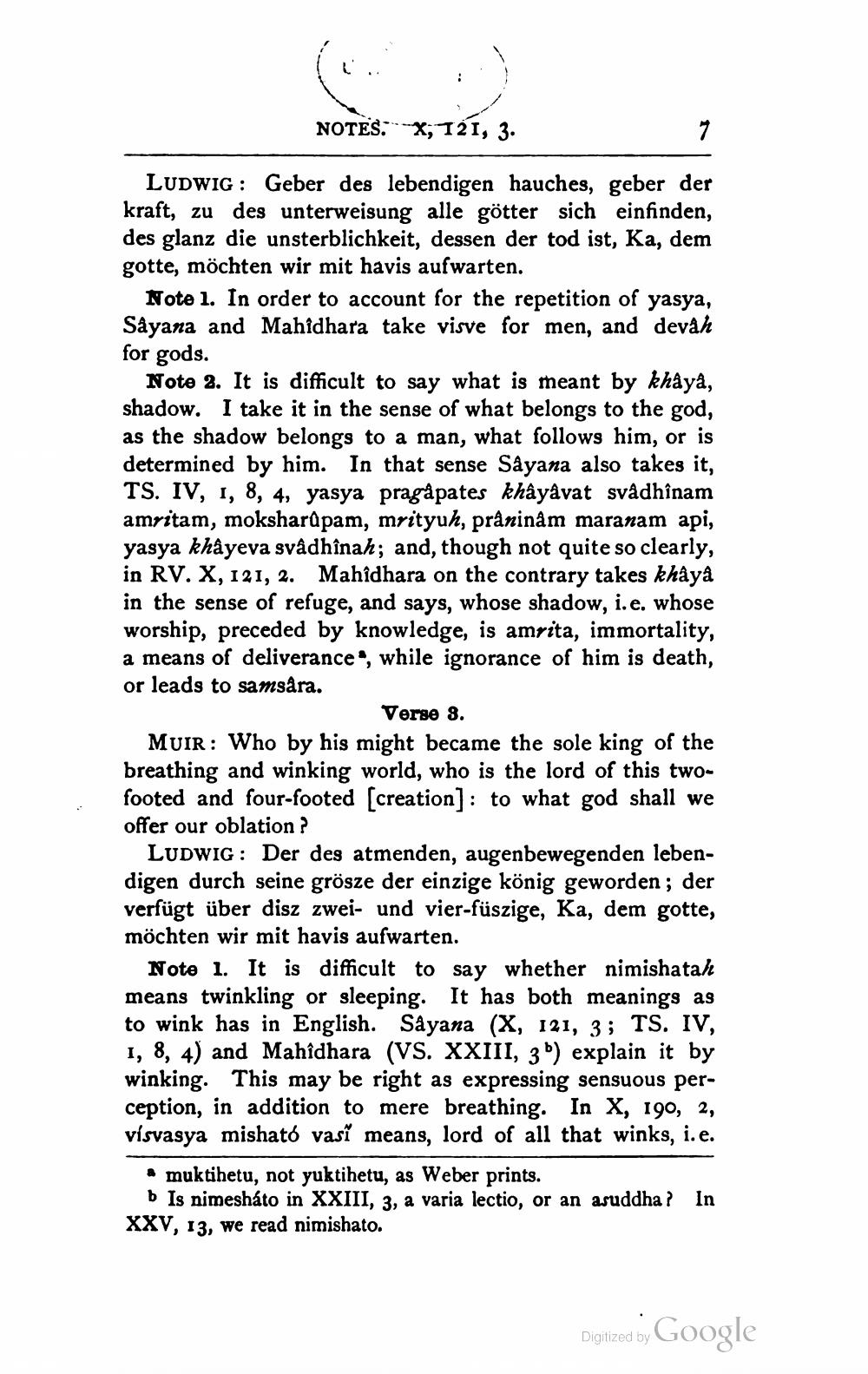________________
NOTES: - *;121, 3.
LUDWIG : Geber des lebendigen hauches, geber der kraft, zu des unterweisung alle götter sich einfinden, des glanz die unsterblichkeit, dessen der tod ist, Ka, dem gotte, möchten wir mit havis aufwarten.
Note 1. In order to account for the repetition of yasya, Såyana and Mahidhara take visve for men, and devah for gods.
Note 2. It is difficult to say what is meant by khaya, shadow. I take it in the sense of what belongs to the god, as the shadow belongs to a man, what follows him, or is determined by him. In that sense Sayana also takes it, TS. IV, 1, 8, 4, yasya pragàpates khâyávat svadhinam amritam, moksharūpam, mrityuh, praninam maranam api, yasya khayeva svådhỉnah; and, though not quite so clearly, in RV. X, 121, 2. Mahîdhara on the contrary takes khaya in the sense of refuge, and says, whose shadow, i.e. whose worship, preceded by knowledge, is amrita, immortality, a means of deliverance`, while ignorance of him is death, or leads to samsara.
Verse 3 MUIR: Who by his might became the sole king of the breathing and winking world, who is the lord of this twofooted and four-footed (creation]: to what god shall we offer our oblation?
LUDWIG: Der des atmenden, augenbewegenden lebendigen durch seine grösze der einzige könig geworden; der verfügt über disz zwei- und vier-füszige, Ka, dem gotte, möchten wir mit havis aufwarten.
Note 1. It is difficult to say whether nimishatah means twinkling or sleeping. It has both meanings as to wink has in English. Sayana (X, 121, 3; TS. IV, 1, 8, 4) and Mahîdhara (VS. XXIII, 36) explain it by winking. This may be right as expressing sensuous perception, in addition to mere breathing. In X, 190, 2, vísvasya misható vast means, lord of all that winks, i.e.
* muktihetu, not yuktihetu, as Weber prints.
b Is nimesháto in XXIII, 3, a varia lectio, or an asuddha ? In XXV, 13, we read nimishato.
Digitized by
Digitized by Google




